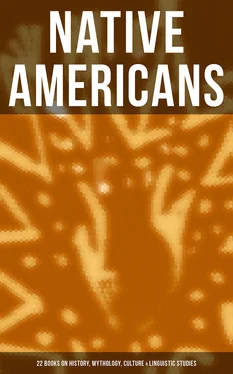After reciting that a contract was entered into August 30, 1866, for the sale of the Cherokee neutral land, between James Harlan, Secretary of the Interior, and the American Emigrant Company; that such contract had been annulled as illegal by O. H. Browning, as Secretary of the Interior, who in turn entered into a contract of sale October 9, 1867, with James F. Joy, for the same lands, it is agreed by this treaty, in order to prevent litigation and to harmonize conflicting interests, as follows, viz: An assignment of the contract of August 30, 1866, with the American Emigrant Company shall be made to James F. Joy. Said contract as hereinafter modified is reaffirmed and declared valid. The contract with James F. Joy of October 9, 1867, shall be relinquished and canceled by said Joy or his attorney. The said first contract, as hereinafter modified, and the assignment thereof, together with the relinquishment of the second contract, are hereby ratified and confirmed whenever such assignment and relinquishment shall be entered of record in the Department of the Interior, and when said Joy shall have accepted such assignment and entered into contract to perform all the obligations of the American Emigrant Company under said first contract as hereinafter modified.
The modifications of said contract are declared to be:
1. Within ten days from the ratification of this treaty, $75,000 shall be paid to the Secretary of the Interior, as trustee for the Cherokee Nation.
2. The other deferred payments shall be paid when they fall due, with interest only from the ratification hereof.
It is distinctly understood that said Joy shall take only the residue of said lands after securing to "actual settlers" the lands to which they are entitled under the amended seventeenth article of the treaty of July 19, 1866. The proceeds of the sales of such lands so occupied by settlers shall inure to the benefit of the Cherokee Nation.
Table of Contents
United States Desire to Remove Indians from Kansas to Indian Territory
Table of Contents
It had for several years been the hope of the Government that so soon as the war was ended arrangements could be perfected whereby concessions of territory could be obtained from the principal Southern tribes. To territory thus acquired it was proposed, after obtaining their consent, to remove the several tribes possessing reservations in Kansas, or at least such of them as were not prepared or willing to dissolve their tribal relations and become citizens of the United States. The fertile and agreeable prairies of that State were being rapidly absorbed by an ever increasing stream of immigration, which gave promise as soon as the war should close and the armies be disbanded of an indefinite increase. The numerous Indian reservations dotting the face of the State in all directions afforded most desirable farming and grazing lands that would soon be needed for this rapidly multiplying white population.
Council of Southern Tribes at Camp Napoleon
Table of Contents
It was, therefore, with much gratification that the Secretary of the Interior learned during the month of June, 1865, 584of the holding of a council at Camp Napoleon, Chattatomha, on the 24th of May preceding, which was attended by representatives of all the southern and southwestern tribes, as well as by the Osages. At this council delegates representing each tribe had been appointed to visit Washington, authorized to enter into treaty negotiations. Before these delegations were ready to start, however, it had been determined by the President to appoint special commissioners, who should proceed to the Indian country and meet them at Fort Smith.
General Council at Fort Smith
Table of Contents
This commission as constituted consisted of D. N. Cooley, Commissioner of Indian Affairs; Elijah Sells, superintendent of Indian affairs; Thomas Wistar, a leading Quaker; General W. S. Harney, of the United States Army; and Col. E. S. Parker, of General Grant's staff. 585Proceeding to Fort Smith, the council was convened on the 8th day of September, and was attended by delegates representing the Creeks, Choctaws, Chickasaws, Cherokees, Seminoles, Osages, Senecas, Shawnees, Quapaws, Wyandots, Wichitas, and Comanches. In opening the council the Indians were informed that the commissioners had been sent to ascertain their disposition and feeling toward the United States; that most of them had violated their treaty obligations to the Government and, by entering into diplomatic relations with the so-called Confederate States, had forfeited all right to the protection of the United States and subjected their property to the penalty of confiscation.
They were assured, however, that the Government had no disposition to deal harshly with them. On the contrary, it was desirous of undertaking such measures as would conduce to their happiness, and was especially determined to grant handsome recognition to those of them whose loyalty had been so firmly and consistently manifested in the face of the most cruelly adverse conditions. The council continued in session for thirteen days. On the second day the Indians were informed that the commissioners were empowered to enter into treaties with the several tribes upon the basis of the following propositions:
1. That opposing factions of each tribe must enter into a treaty for permanent peace and amity among themselves: also between each other as tribes, and with the United States.
2. The tribes settled in the "Indian country" should bind themselves at the call of the United States authorities to assist in compelling the wild tribes of the plains to keep the peace.
3. Slavery should be abolished and measures should be taken to incorporate the slaves into the several tribes, with their rights guaranteed.
4. A general stipulation as to the final abolition of slavery.
5. A part of the Indian country should be set apart to be purchased for the use of such Indians from Kansas or elsewhere as the Government should desire to colonize therein.
6. That the policy of the Government to unite all the Indian tribes of this region into one consolidated government should be accepted.
7. That no white persons, except Government employés or officers or employés of internal improvement companies authorized by Government, should be permitted to reside in the country unless incorporated with the several nations.
Reasons for Cherokee disloyalty. —The subsequent sessions of the council were largely taken up in the discussion of these propositions by the representatives of the various tribes. It is only with the conduct of the Cherokees, however, that the present history is concerned. The address of the representatives of the "loyal" portion of this tribe is especially noteworthy in this, that they charged the cause of their alliance with the rebel authorities upon the United States, by reason of the latter having violated its treaty obligations in failing to give them protection, whereby they were compelled to enter into treaty relations with the Confederacy. This statement the president of the commission took occasion to traverse, and to assure them of the existence of abundant evidence that their alliance with the Confederacy was voluntary and unnecessary.
Before the close of the council it was ascertained that no final and definite treaties could be made with the tribes represented, for the reason that until the differences between the loyal and disloyal portions could be healed no truly representative delegations of both factions could be assembled in council. Preliminary articles of peace and amity with the different factions of each tribe were prepared and signed as a basis for future negotiations.
Читать дальше












